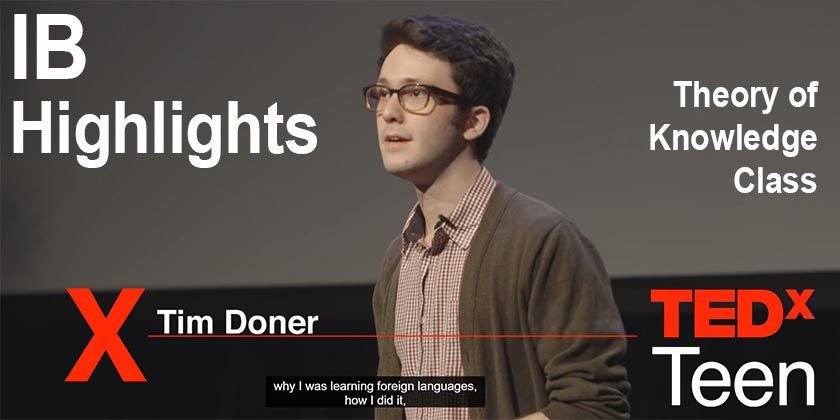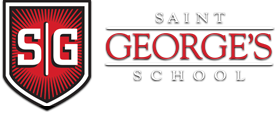IB Highlights: Theory of Knowledge
March 08, 2021

SGS students in the International Baccalaureate Diploma Programme take a class on the Theory of Knowledge. They recently looked at language -- one of eight different ways of knowing.
CORE Highlight: Theory of Knowledge
The junior class has begun the Theory of Knowledge (TOK) class. They are currently transitioning from the required core theme of “Knowledge and the Knower” to “Knowledge and Language,” which is one of five optional themes. Students watched a Teen Ted Talk last week called “Breaking the Language Barrier.” Next week they will build “mini exhibitions” where they will find one object and link it to a knowledge question in a 300-word reflection. At the end of the semester, they will do this with 3 objects and one prompt for their full exhibitions, which is their new Internal Assessment.
CAS Experience Highlights: CAS experiences for all of our Upper School students (in the US and in China) include dog training, donating food and clothes to an orphanage, going on a hike, decorating fan shirts, rock climbing, and cleaning the Biology lab.
IB Question of the Week: What are the aims of the TOK class that full diploma students take?
The Theory of Knowledge (TOK) course plays a special role in the Diploma Programme (DP) by providing an opportunity for students to reflect on the nature, scope and limitations of knowledge and the process of knowing. In this way, the main focus of TOK is not on students acquiring new knowledge but on helping students to reflect on, and put into perspective, what they already know. TOK underpins and helps to unite the subjects that students encounter in the rest of their DP studies. It engages students in explicit reflection on how knowledge is arrived at in different disciplines and areas of knowledge, and on what these areas have in common and the differences between them.
The aims of the TOK course are:
• to encourage students to reflect on the central question, “How do we know that?”, and to recognize the value of asking that question;
• to expose students to ambiguity, uncertainty and questions with multiple plausible answers;
• to equip students to effectively navigate and make sense of the world, and help prepare them to encounter novel and complex situations;
• to encourage students to be more aware of their own perspectives and to reflect critically on their own beliefs and assumptions;
• to engage students with multiple perspectives, foster open-mindedness and develop intercultural understanding;
• to encourage students to make connections between academic disciplines by exploring underlying concepts and by identifying similarities and differences in the methods of inquiry used in different areas of knowledge;
• to prompt students to consider the importance of values, responsibilities and ethical concerns relating to the production, acquisition, application and communication of knowledge.
IB Overview: The Diploma Programme (DP) curriculum for grades 11-12 is made up of six subject groups and the DP core, comprising Theory of Knowledge (TOK), Creativity, Activity, Service (CAS) and the Extended Essay (EE). Please refer to our IB webpage and to the IB Resources page in PowerSchool Learning for detailed IB information.

